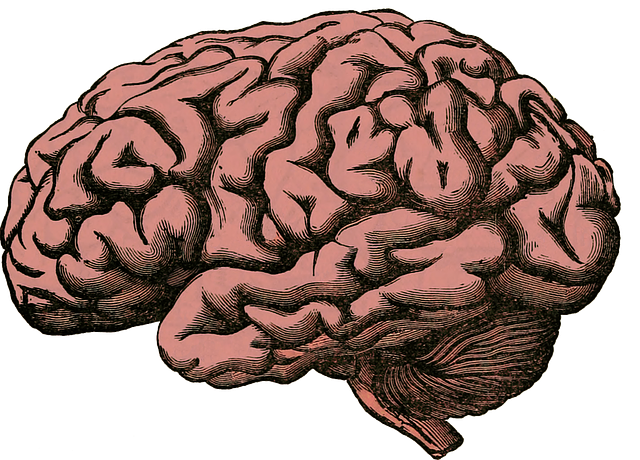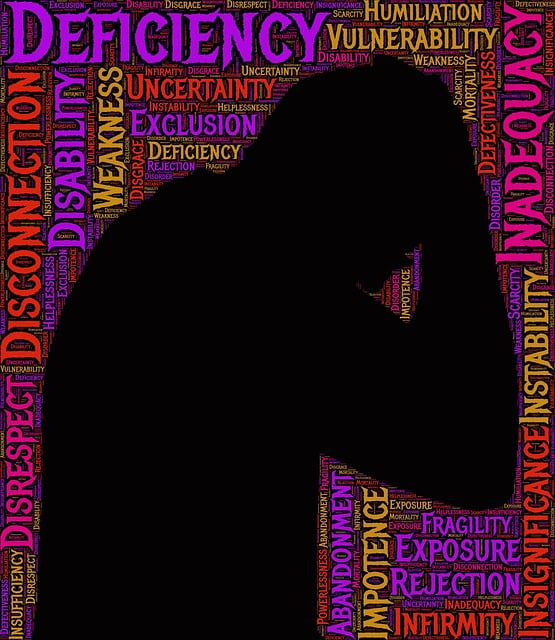In diverse Louisville, cultural competency is crucial for improving healthcare outcomes, as demonstrated by Louisville Codependency Therapy. Overcoming language barriers and differing health beliefs requires public awareness campaigns and community outreach. Training mental health professionals with compassion cultivation practices and integrated risk management improves patient-provider relationships and treatment effectiveness. Evaluating success through multifaceted data, including improved patient outcomes and staff behavior changes, shows the tangible benefits of cultural competency programs in Louisville Codependency Therapy settings.
In an increasingly diverse healthcare landscape, cultural competency is vital. This article explores Louisville’s perspective on enhancing patient care through provider training, addressing barriers like language and cultural differences. We delve into effective strategies for implementing programs that foster understanding, empathy, and respect. By measuring success through evaluation, Louisville codependency therapy centers can ensure their efforts positively impact patient outcomes, fostering a more inclusive healthcare environment.
- Understanding Cultural Competency in Healthcare: A Louisville Perspective
- Identifying Barriers: Challenges in Providing Quality Care
- Strategies for Effective Training and Implementation
- Measuring Success: Evaluating the Impact of Cultural Competency Programs
Understanding Cultural Competency in Healthcare: A Louisville Perspective

In Louisville, cultural competency within healthcare is more than a buzzword; it’s an essential tool for improving patient outcomes and fostering stronger communities. The city’s diverse population, reflecting a rich tapestry of backgrounds, languages, and beliefs, underscores the need for providers to be adept at navigating complex cultural nuances. This involves understanding not just racial and ethnic differences but also spiritual practices, family dynamics, and socioeconomic factors that influence health and wellness.
Louisville Codependency Therapy, for instance, exemplifies an approach that leverages inner strength development and emotional healing processes. By integrating Mind Over Matter principles, therapists help individuals and families overcome challenges rooted in cultural contexts, promoting holistic well-being. This Louisville perspective on cultural competency training empowers healthcare providers to offer more personalized, respectful, and effective care, ultimately bridging the gap between diverse communities and modern medical practices.
Identifying Barriers: Challenges in Providing Quality Care

In many communities, healthcare providers face significant barriers when attempting to deliver quality care, particularly in areas like Louisville Codependency Therapy where cultural and socioeconomic disparities are pronounced. These challenges often stem from a lack of understanding and appreciation for diverse cultural beliefs, practices, and communication styles among patients. For instance, language barriers can hinder effective patient-provider interactions, leading to misdiagnoses or improper treatment plans. Additionally, cultural norms regarding health and healing might differ vastly, causing misunderstandings and mistrust.
The need for crisis intervention guidance is evident when addressing these issues. Public awareness campaigns development and community outreach program implementation can play a pivotal role in bridging these gaps. By fostering open dialogues, educating healthcare professionals on cultural competency, and promoting inclusive practices, communities can enhance access to quality care. Such initiatives not only empower patients but also equip healthcare providers with the necessary tools to offer more personalized and effective treatment, ensuring better health outcomes for all.
Strategies for Effective Training and Implementation

Effective cultural competency training requires a multi-faceted approach. One key strategy is to incorporate Compassion Cultivation Practices into the curriculum, fostering understanding and empathy towards diverse patient backgrounds. This not only enhances patient-provider relationships but also improves mental health outcomes, as shown by research on Self-Care Routine Development for Better Mental Health.
Additionally, integrating risk management planning for mental health professionals is essential. By teaching strategies to navigate potential challenges and manage boundaries, training programs can ensure practitioners feel supported and equipped to deliver care effectively. These practices are vital for navigating complex cultural landscapes, particularly in urban settings like Louisville Codependency Therapy communities, where diverse needs and perspectives demand nuanced approaches.
Measuring Success: Evaluating the Impact of Cultural Competency Programs

Evaluating the success of cultural competency training is crucial to ensuring its effectiveness and impact on healthcare delivery. Measuring success goes beyond simple satisfaction surveys; it involves a multifaceted approach that captures both qualitative and quantitative data. One effective method is tracking improvements in patient outcomes, such as reduced hospital readmissions or increased adherence to treatment plans, which can be attributed to more culturally sensitive care.
Additionally, assessing the implementation of new practices and policies related to cultural competency within healthcare organizations provides tangible evidence of program impact. This includes observing changes in staff behavior, communication styles, and decision-making processes that reflect a deeper understanding and appreciation for diverse cultural backgrounds. For instance, Louisville Codependency Therapy, a leading provider of stress management workshops organization, has seen significant improvements in patient satisfaction and clinical outcomes after implementing specific stress reduction methods taught through their cultural competency programs.
Cultural competency training is a vital tool in enhancing healthcare services, as evidenced by Louisville’s proactive approach. By addressing barriers and implementing effective strategies, healthcare providers can improve patient outcomes and foster more inclusive environments. The success of cultural competency programs, like Louisville Codependency Therapy, lies in their ability to measure and adapt based on evaluation results. Investing in such training is not just a step towards equality; it’s a game-changer that ensures every patient receives respectful, culturally sensitive care.














